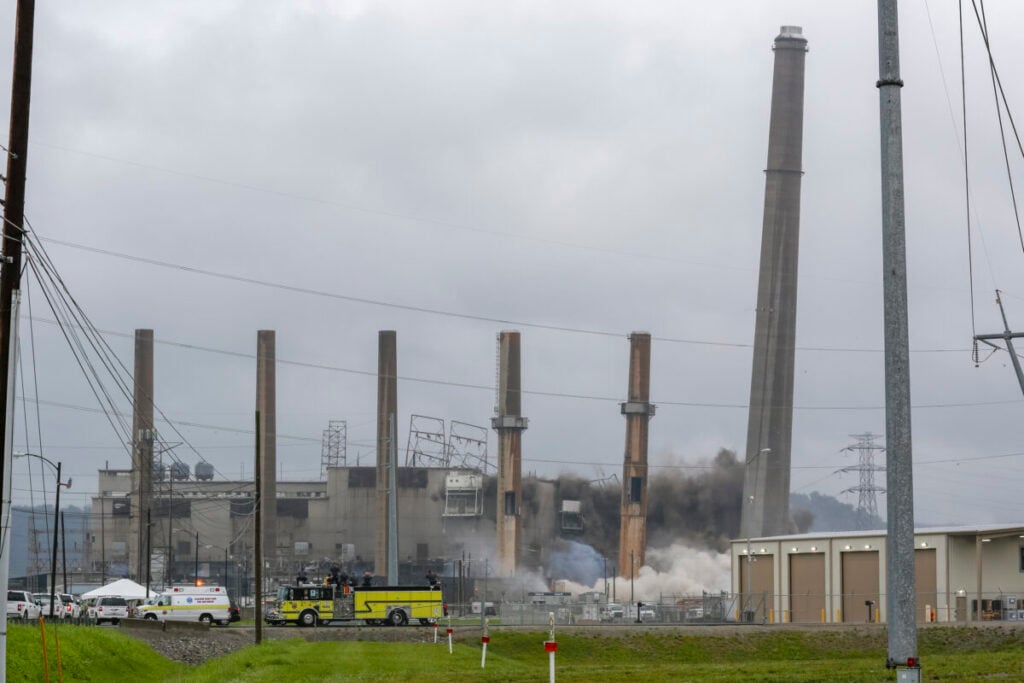
Louisville Gas and Electric Company (LG&E) and Kentucky Utilities Company (KU) have withdrawn plans to deploy a new 400MW/1,600MWh BESS, less than six months after the project was first announced.
As reported by Energy-Storage.news earlier this year, the two PPL Corporation subsidiaries submitted an application with the Kentucky Public Service Commission (KPSC) seeking approval to construct a series of new assets, after identifying “significant load growth” set to occur between now and 2032.
However, along with dropping plans for the BESS, the two utilities are now also seeking approval to further expand their fossil fuel fleets.
US$775 million investment in BESS
As part of their February application with the PSC, the two utilities sought approval of a Certificate of Public Convenience and Necessity (CPCN) to construct a 400MW/1,600MWh lithium-ion BESS located approximately 10 miles southwest of Downtown Louisville in Jefferson County, Kentucky.
Try Premium for just $1
- Full premium access for the first month at only $1
- Converts to an annual rate after 30 days unless cancelled
- Cancel anytime during the trial period
Premium Benefits
- Expert industry analysis and interviews
- Digital access to PV Tech Power journal
- Exclusive event discounts
Or get the full Premium subscription right away
Or continue reading this article for free
Specifically, the BESS was to be sited at LG&E’s Cane Run 691MW fossil gas power plant, which, until 2015, was still running on coal.
Although the project was still in the early planning phase at this point, LG&E included technical drawings as part of their application, which modelled the BESS as consisting of 544 Tesla Megapack 2XL units.
Ownership of the BESS was set to be split between KU and LG&E, who planned to own 68% and 32%, respectively. At a projected cost of around US$775 million, the BESS was expected to come online sometime during 2028.
Along with the BESS, LG&E and KU also sought approval to expand the capacities of their E.W. Brown and Mill Creek fossil fuel power plants by installing two new fossil gas units rated at 645MW each.
The utilities also sought approval to install a selective catalytic reduction (SCR) system at another of their fossil plants, located in Carroll County.
Delayed coal shutdown, BESS dropped
On 19 July, the utilities announced that they had come to a stipulation agreement in their ongoing case with the Kentucky PSC, resulting in a “mutually beneficial outcome” for several intervening parties after two days of negotiations.
The interveners, which the utilities described as having “widely varying views and positions,” included the Office of Rate Intervention, Kentucky Industrial Utility Customers, Southern Renewable Energy Association and the Kentucky Coal Association.
Although the interveners agreed that the KPSC should grant CPCNs for the 1.29GW-worth of fossil gas additions and SCR system, the agreement requested that the BESS at Cane Run be dropped and instead called for the life of a coal-fired power station to be extended.
“Extending the life of Mill Creek 2 is necessary and economical to serve anticipated load, particularly in the absence of additional BESS resources,” stated two employees of PPL Corporation as part of a testimony filed with the KPSC.
A 2023 report from environmental advocacy group Sierra Club ranked PPL Corporation’s ageing coal-fired Mill Creek facility as one of America’s deadliest in terms of causing premature deaths from soot, causing an estimated 66 deaths annually.
Despite this, the two utilities have proposed to extend the life of Mill Creek’s 297MW coal-fired Unit 2 from 2027 to 2031.
The agreement states that the utilities “may” refile a CPCN application for the Cane Run BESS “at any time” that would be supported through a competitive procurement process.
Widely criticised move
The move from LG&E and KU to drop plans for a BESS and increase the size of their fossil fuel fleet has been widely criticised by many environmental and public advocacy groups.
“The proposal prioritizes corporate interests over affordability, public health, and climate action,” said Bryon Gary, attorney for Kentucky Resources Council, as part of a wider statement condemning the move.
Gary represented public interest groups Kentuckians For The Commonwealth, Kentucky Solar Energy Society, Metropolitan Housing Coalition, and Mountain Association in the recent KPSC case which all chose not to join the stipulation agreement.
“Resources like solar, battery storage, demand side management, and energy efficiency can get built faster and at a lower cost to ratepayers than the proposed gas plants,” said board member of the Kentucky Energy Society, Andy McDonald.
The two utilities claim the additional generation is needed due to the “expected influx of data centres” destined for the State. However, opponents of the plan believe it shouldn’t be ratepayers that bear the burden of future costs associated with potential data centre growth.
“It’s the data centres — if they ever get built — who should bear the risk”, said Tony Curtis, Executive Director of the Metropolitan Housing Coalition. “LG&E/KU has stated that without data centre growth, there would be no need for the proposed new generation,” said Curtis.
The final decision on whether to grant LG&E and KU permission to move forward with their plans now rests with the KPSC.





